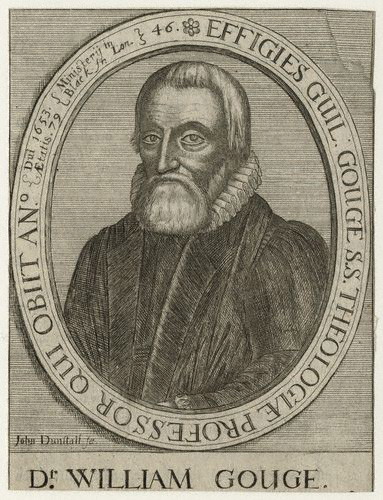1558 Elizabeth I
1558 Act of Uniformity (passed in 1559): Book of Common Prayer reinforced and legal obligation to attend church service weekly
1558 (Second) Act of Supremacy: Elizabeth declared Supreme Governor of the Church of England
1559 John Knox returns to Scotland
1559 Elizabeth I appoints Matthew Parker as Archbishop of Canterbury
1560 Scots Confession and the first Book of Discipline
1561 English translation, by Thomas Norton, of Calvin’s Institutes published
1563 39 Articles approved by Convocation as the doctrinal creed of the CoE
1564 John Calvin dies
1566 Start of separatists movements in response to vestment controversies (dating back to John Hooper during Edward VI’s reign)
1570 Thomas Cartwright’s Cambridge lectures - the foundations of presbyterianism
1571 The 39 Articles approved by Parliament
1572 Presbytery of Wandsworth
1574 Cartwright translates Walter Travers's A Full and Plaine Declaration of Ecclesisaticall Discipline Owt Off the Word Off God - a presentation of nonconforming Calvinism
1575 Geneva Bible completed
1576 Edmund Grindal Archbishop of Canterbury
1577 ABp Grindal suspended for refusing to stop Puritan “prophesyings”
1580 Jesuit missionaries sent to England
1581 Robert Browne’s Treatise of Reformation without Tarrying for Any
1582 Act makes all Catholic clergy in England liable to execution
1583 John Whitgift becomes Archbishop of Canterbury
1584 The "Black Acts" in Scotland
1587 Walter Travers's Book of Discipline
1587 Cope's "Bill and Book"
1588 Marprelate Tracts published
1592 'The Golden Acts" passed in Scotland
1593 Execution of Greenwood and Barrow
1595 Lambeth Articles
1603 James I (cousin of Elizabeth I)
1603 Millenary petition
1604 Hampton Court Conference
1604 Book of Common Prayer Revised
1604 Richard Bancroft Archbishop of Canterbury
1605 Gunpowder plot - Romans seek to blow up Parliament
1608 Separatists leave for the Netherlands
1610 Episcopacy restored in Scotland
1611 George Abbot Archbishop of Canterbury
1611 King James Version of Bible published
1617 Irish Articles promulgated
1618 Book of Sports - games allowed on Sundays
1618-1619 Synod of Dordt
1620 Mayflower sets sail for Massachusetts
1625 Charles I
1625 Bubonic plague
1626 Charles I prohibits predestinarian teaching at Cambridge
1626 York House Conference
1628 William Laud becomes bishop of London
1629 Parliament dissolved by Charles I
1630 Arbella sets sail for Massachusetts
1633 William Laud Archbishop of Canterbury
1633 Book of Sports renewed
1637 New Scottish Prayer Book - causes riot in Edinburgh
1638 Scottish National Covenant
1640 April “Short Parliament”
1640 November “Long Parliament”
1642 English Civil War
1643 Solemn League and Covenant
1643 Westminster Assembly (to 1646)
1643 Split between Presbyterians and congregationalists in the Westminster Assemby
1644 Book of Common Prayer replaced with Directory of Worship
1644 First London Baptist Confession of Faith
1645 Feb New Model Army
1645 William Laud executed (no Archbishop until 1660)
1645 June Battle of Naseby - Cromwell defeats Charles I
1647 Society of Friends formed by George Fox (Quakers)
1648 Start of Thirty Years War in Europe
1649 Charles I is executed
1649 Last numbered plenary session of the Westminster Assembly
1653 Dissolution of 'Rump' of Long Parliament
1653 Cromwell becomes Lord Protector
1658 Savoy Conference; Savoy Declaration of Church and Order
1658 Cromwell dies, succeeded by son Richard
1660 Restoration of Monarchy: Charles II
1660 William Juxton Archbishop of Canterbury
1662 Act of Uniformity passed - almost 2000 clergy forced out of parishes (Great Ejection)
1663 Gilbert Sheldon Archbishop of Canterbury
1664 First Conventicle Act
1665 Great Plague in London begins
1665 Five Mile Act
1666 Great Fire of London
1672 Declaration of Indulgences - dissenters are permitted to hold services
1673 First Test Act - Catholics are prevented from remaining in public offices
1678 Bunyan's Pilgrim Progress published
1685 James II






